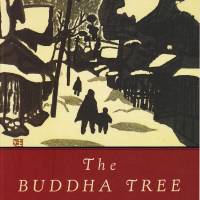Fumio Niwa's 1955-56 novel (translated in 1966) centers on the conflict between the spiritual and material worlds, vying in this instance for the soul and integrity of Soshu, a corrupted and conflicted Buddhist priest. While he dispenses spiritual advice to members of his congregation, Soshu is having an affair with his mother-in-law, which causes him powerful surges of guilt followed by recidivism in a cycle that seems unbreakable. Abandoned by his wife, this man of weak character and convictions must find his own path to redemption without a strong ethical grounding.
A prolific writer blessed with an extraordinary degree of creative stamina, Niwa was well qualified to speak on issues pertaining to matters of religion. The son of a Buddhist priest, he was ordained during childhood and groomed for future duties, but left the priesthood after completing a degree in literature at Waseda University. The formative years of Niwa's youth surface in this astutely observed novel, where temple life is portrayed as liberating to the believer, and oppressive to those of lapsed faith.
The theme in "The Buddha Tree" is well trodden: The path to spiritual purity pitted against the pleasures of the world. Niwa's candid examination of human failure and his reflections on the earthly concerns of the Buddhist clergy resonate strongly today among an increasingly skeptical, agnostic-leaning Japanese public.
Read archived reviews of Japanese classics at jtimes.jp/essential.


















With your current subscription plan you can comment on stories. However, before writing your first comment, please create a display name in the Profile section of your subscriber account page.